6 reasons why President Putin chose China as his first overseas trip after taking office for the 5th time
(Baonghean.vn) - Dr. and expert Andrei Kortunov - Chairman of the Academic Council of the Russian Council on International Affairs, pointed out 6 special reasons why President Vladimir Putin paid a visit to China right after taking office for the 5th time, for 2 days (May 16-17).
Expert Kortunov commented that the meeting between the two leaders Vladimir Putin and Xi Jinping will become an important event, even "unique" in international life.
Return visit
In March 2023, right after being re-elected as President for the third time, Mr. Xi Jinping also chose Russia as the destination for his first official visit.
And now, President Putin, who was re-elected in March 2024, has reciprocated the friendship of his “friend” and longtime partner by visiting China, before making trips to Turkey, Iran and North Korea.
The decision is symbolic, underscoring China's importance to Russia.
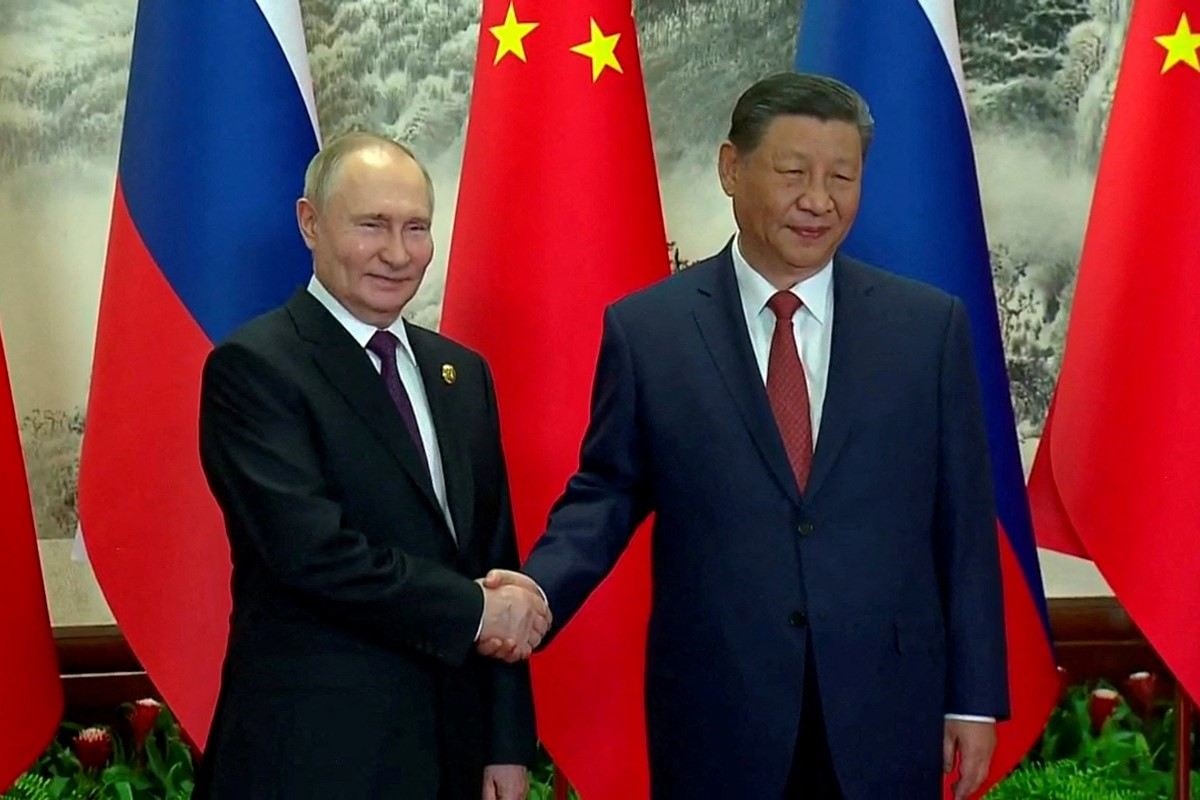
Developing economic relations
2023 was supposed to be a successful year for Russia-China economic cooperation: bilateral trade reached a record $240 billion. However, leading Western countries are determined to at least slow down this trend of cooperation. As a result, the West has increased economic and political pressure on Beijing over the past six months. This has led to growing concerns in the Chinese private sector about the possible negative impact of secondary sanctions.
After the European Union imposed the 12th package of sanctions against Russia in December 2023, some leading Chinese banks became reluctant to accept USD payments with Russia. This affected the dynamics of Russia-China bilateral trade, which had maintained steady growth for two years. In March 2024, a 2% decrease was recorded. At the same time, Chinese exports to Russia in March decreased by 14% compared to the same period in 2023 (from 8.9 billion to 7.6 billion USD), while Russian exports to China continued to increase and reached 12 billion USD.
Bilateral trade results in April 2024 were also mixed: China's exports to Russia partially recovered in March, rising to $8.3 billion, but China's imports from Russia fell to $11.4 billion.
US Secretary of State Antony Blinken's most recent trip to China in April 2024 once again confirmed that Washington will continue to complicate Russia-China economic relations as much as possible.
So, Russian President Vladimir Putin and President Xi Jinping will have to focus on how to counter such US efforts and ensure that bilateral trade actually reaches $280–290 billion by the end of 2024, as previously planned.
Summits tend to act as powerful catalysts for bilateral trade and investment.
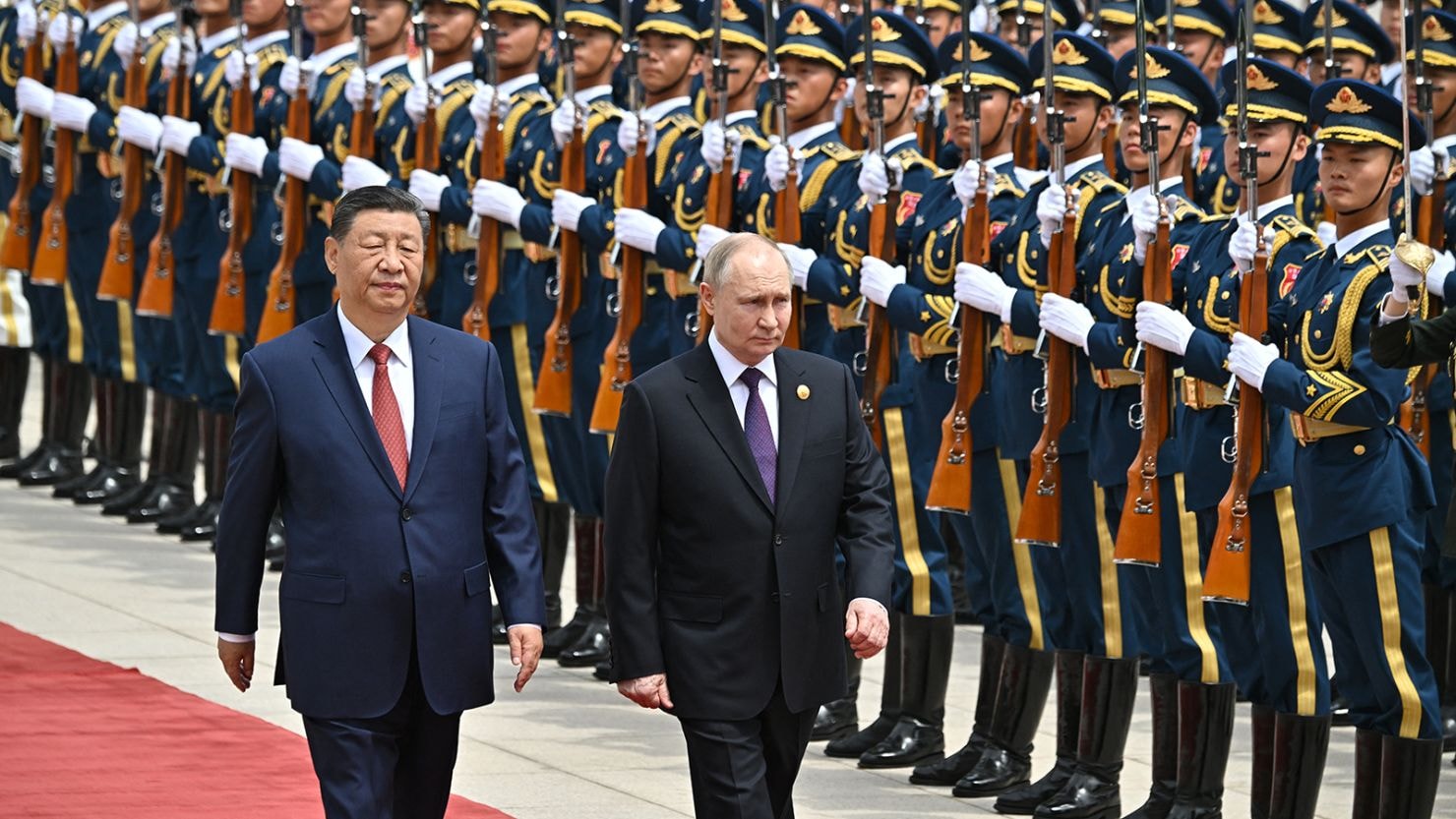
Responding to global issues
Many who hoped that 2024 would be a turning point in world politics – a shift from conflict and confrontation to reconciliation and cooperation – have been disappointed. The world in 2024 entered an even more dramatic year, with many tragic events happening simultaneously in different parts of the world.
The Russia-Ukraine and Israel-Palestine conflicts continue; Yemen's Houthi forces continue to attack military and commercial vessels in the Red Sea; the situation in the Sahel and Sudan remains unstable; no progress has been made on nuclear non-proliferation; global defense spending and arms trade in 2024 reach historic highs.
On the other hand, 2024 also opens up a number of opportunities that both Russia and China cannot ignore. This is a year for BRICS to logically follow up on the bloc’s recent expansion, doubling its membership, and introducing new forms of cooperation. Notably, Russia takes over the rotating presidency in 2024, and will host the next BRICS Summit in Kazan in the fall.
Additionally, the Shanghai Cooperation Organization could also begin its transformation by accepting Belarus as a member, and the organization would seek new multilateral cooperation opportunities.
Russian and Chinese leaders will have to discuss a wide range of issues related to the growing instability in the world, and coordinate actions to respond to the rapid changes taking place.
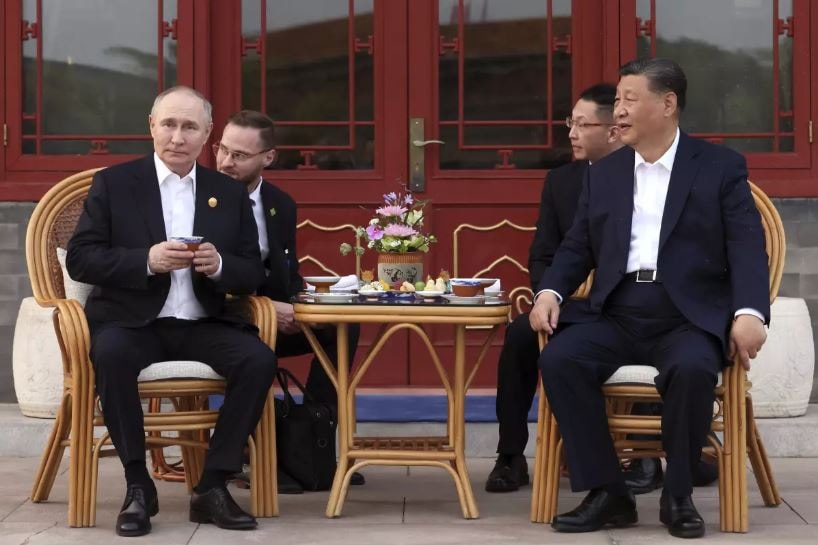
Conflict with the West
Strained relations with the West were also a central topic of discussion between President Putin and President Xi Jinping.
Just days before his meeting with President Vladimir Putin, President Xi Jinping returned from a European tour that took him to France, Hungary, and Serbia. This was the first visit by a Chinese leader to Europe in five years, but it also allowed Xi to make a substantive assessment of the differing views in European countries on the prospects for relations with both China and Russia.
According to Kortunov, the two leaders of Russia and China are not complete opposites, but have slightly different views on modern Europe and its role in world politics. President Putin remains highly skeptical of the “strategic autonomy” of European countries vis-à-vis the United States, while President Xi Jinping hopes that Beijing will cooperate with European powers, as well as the entire European Union, even as US-China relations deteriorate.
Russia has been forced to cross red lines in its relations with Europe, while China remains in an area of strategic instability.
China's trade volume with the EU is expected to reach US$782.9 billion by 2023, with China's exports to the EU exceeding US$500 billion and imports from the EU reaching US$281.7 billion.
The results of the US presidential election in November will also be an important issue in the discussion between President Putin and President Xi Jinping.
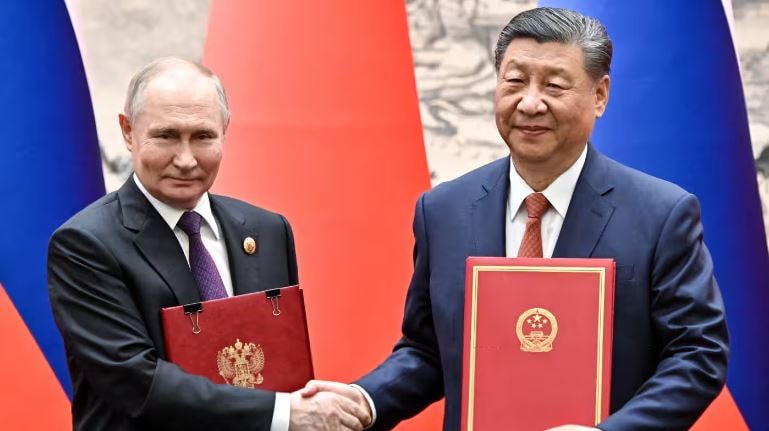
New World Order
One of the main tasks for both Russia and China, says Kortunov, is how to find common global interests in a volatile and unpredictable world where the development trajectories of individual countries are not only difficult to coincide, but increasingly different.
Russia and China’s views on the restructuring of the international system are quite close in fundamental aspects. Therefore, it is important to discuss both the similarities and differences between the main components of the emerging world order.
Strengthening people-to-people relations
2024 marks the 75th anniversary of the establishment of diplomatic relations between Russia and China. This is not only a good opportunity to organize a series of activities, cultural events, exhibitions, business exchange seminars, investment attraction, scientific conferences, but also to promote the expansion of people-to-people exchanges between the two countries.
In particular, the two countries' leaders will likely pay special attention to expanding bilateral relations in the fields of higher education and science, tourism and cross-border interactions.
Mr. Kortunov hopes that President Vladimir Putin and President Xi Jinping will achieve a breakthrough in the visa exemption process between the two neighboring countries. Currently, China has exempted visas for citizens of 12 countries: Austria, Belgium, Hungary, Germany, Ireland, Spain, Italy, Luxembourg, Malaysia, the Netherlands, France and Switzerland.
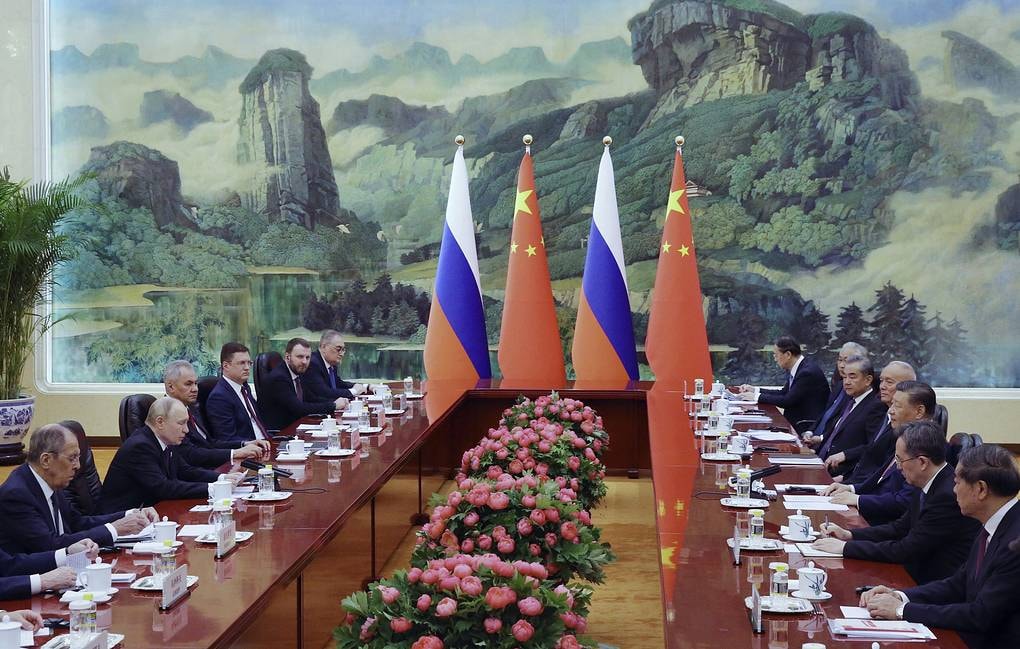
According to Mr. Kortunov, many of the conversations between President Putin and President Xi Jinping will take place behind the scenes. The specific results of the Russia-China talks may not be announced immediately after they are over. However, the leaders of the two countries may issue a political statement or joint statement reflecting areas of consensus and a list of common priorities.
When this document is widely published, it will certainly become the most closely read subject for those who want to know about the current dynamics and prospects for the development of Russia-China relations.
The fact is that a meeting between two leaders, even if it is President Vladimir Putin and President Xi Jinping, is unlikely to reverse all the negative trends in global development. Therefore, according to Kortunov, one should not expect miracles from this meeting. Stable and effective bilateral relations between Russia and China cannot be considered an alternative to more innovative multilateral formats.
However, expert Kortunov said it is undeniable that the close personal relationship between President Vladimir Putin and President Xi Jinping plays an important role, contributing to the overall stability of today's unstable world./.
